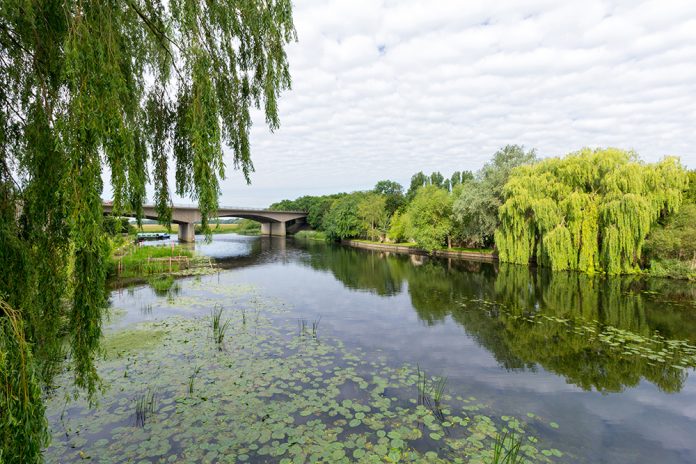A new €4m cross-border project between England and France will help to improve how local areas mitigate and adapt to the threats of increased future water scarcity and drought in England and France.
Water for Tomorrow is an EU Interreg France (Channel) England project which will develop and test innovative water management tools and decision-making support systems. These will enable more responsive short-term management of drought events, and better long-term planning, as well as investment in water management at a local scale.
The project will run in 5 pilot areas, three in East Anglia, one in Brittany and one in Hauts-de-France. The project will address challenges related to over-abstraction, increasing water demand, and decreasing water availability due to climate change.
Barry Bendall, Director for Operations at The Rivers Trust, said: “Water deficit is a shared problem which requires shared solutions. And as external pressures increase on our water systems it becomes vital for us to start working more collaboratively across the sectors and build a shared vision for how we plan for and respond to periods of water scarcity and drought. Drought is a recurring problem with a serious economic, social and environmental cost globally.”
In East Anglia, many of the rivers and aquifers are unable to meet the demand for water and the lack of available water already impacts on the environment, agriculture and public water supply. All of which comes at a cost to the region in terms of additional emergency expenditure, lost income and a depletion of natural capital.
In the French regions of the Channel area, the issue is emerging with more frequent and longer droughts leading to increased concerns over future public water supply and the potential for conflicts among different sectors.
In the Brittany pilot site, for example, risks of water supply failure could emerge around popular tourist spots as demand for water supply peaks in the summer months when water resources are scarce. In the Hauts-de-France pilot site, growing demand for irrigation and from urban areas may jeopardise the water balance in the near future.
Water for Tomorrow will address these challenges by engaging with stakeholders from all sectors to co-design and test innovative operational management and planning tools and use smart technology to deliver multi-objective and cost-effective outcomes across the project.
In practice the project will:
Carry out modelling work to identify through simulation the points of failure within the current management system and determine interventions that can improve resilience.
Support the optimisation of increasingly scarce water resources, reducing the risk of failure and related damage costs incurred by water utilities, society, business and the environment – increasing the resilience of the FCE economy and its underpinning Natural Capital.
Involve all stakeholders, at the local and regional level, in the development of innovative water management approaches.
Trigger exchange of experience and cross fertilisation between French and English partners who have different yet complementary water management frameworks.
Share lessons learnt, results and innovative methodologies and tools with a broad audience of water managers and planners in the Channel region.
The best practice(s) identified in the project will be upscaled to other catchments and water management areas in France and England.
Carolyn Reid, Programme Manager for the Interreg France (Channel) England programme, said: “Water scarcity is a recurring problem with serious economic, social and environmental cost for the Channel area. The funding for this project, will help address this challenge and increase local resilience by bringing together relevant stakeholders to co-design innovative management tools and systems.”
The project has a total budget of €4m funding of which €2,8m has been co-financed by the European Regional Development Fund via the Interreg France (Channel) England Programme.




